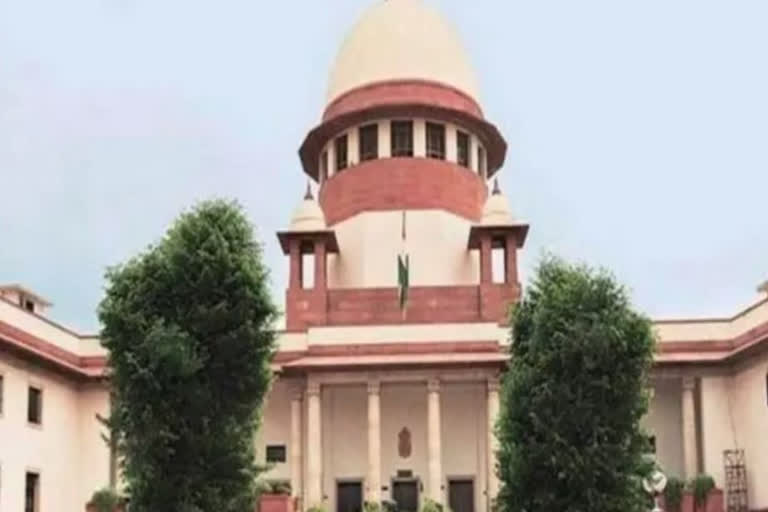New Delhi: While hearing a suo motu case on the situation of migrant workers during the Cocvid-19 pandemic, The Supreme Court on Tuesday asked the Centre about its plans in order to ensure that the workers were getting their share of benefits. The bench comprising Justices MR Shah and Hima Kohli while hearing the matter opined that the purpose of registration was not just to identify the afflicted, but also to ensure that benefits reach them.
Additional Solicitor General Aishwarya Bhati appearing for the Centre said 28 crore people had been identified through the e-Shram portal. The Centre is providing food grains through fair-price shops, the ASG noted, adding further that it identified a 'broader percentage', on the basis of which the exact number was ascertained through a household consumption survey.
"Ultimately we are only concerned with that it reaches... we are not saying that you are not doing anything. Excellent work was done during Covid, but it should continue. Food grains should reach those who need it," observed J Shah. The ASG argued that the 2011 census did not 'hold back the hands' of the Centre. It is a 'constant process' to identify the number, she noted, hailing NSSO survey, property estimates, and uniform methodology was used to determine the actual count.
Also read: Women can choose not to give birth: Delhi HC allows termination of 33-week pregnancy
Earlier, Advocate Prashant Bhushan had argued against 2011 census numbers being used in the counting process, noting India's position had rapidly declined in the Global Hunger Index. Over 94 per cent of those identified earn less than Rs 10,000 and if they have a family of four or five then the population of those in need would be over 100 crore. India is placed at 107th position out of 121 countries, he stated. Justice Shah observed that the hunger index number had been disputed by the Central government.
Based on the Centre's affidavit, the bench also pulled up Maharashtra for its inaction, noting "some states are yet to achieve the targets", observing, however, that others were doing well in the e-Shram registration process. The SC ordered the next hearing on December 8. It further observed that current registration numbers were from September 2022, also seeking new registrations as opposed to the target as of today, December 6, during the next hearing.



